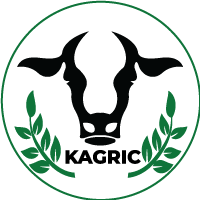Skills Development in Agriculture
In the ever-evolving field of agriculture, skills development plays a crucial role in ensuring the growth and success of farmers, agricultural workers, and the industry as a whole. As technology advances and new challenges arise, it becomes increasingly important for individuals involved in agriculture to continuously upgrade their skills and knowledge.One of the key areas of skills development in agriculture is the adoption and mastery of modern farming techniques. With the advent of precision agriculture, farmers can now use advanced technologies such as GPS, drones, and sensors to optimize their crop production. These tools enable them to monitor soil moisture levels, detect crop diseases, and apply fertilizers and pesticides more efficiently. By acquiring the necessary skills to operate and interpret the data from these technologies, farmers can improve their yields and reduce environmental impact.Another essential skill for agricultural professionals is the ability to adapt to changing market demands. As consumer preferences shift towards organic and sustainable products, farmers need to stay updated on the latest practices in organic farming and sustainable agriculture. This includes learning about alternative pest control methods, soil health management, and water conservation techniques. By developing these skills, farmers can tap into new markets and meet the growing demand for environmentally friendly and socially responsible agricultural products.In addition to technical skills, soft skills are also crucial in the agricultural sector. Effective communication, teamwork, and problem-solving skills are essential for farmers and agricultural workers to collaborate with suppliers, buyers, and other stakeholders. These skills are especially important in the context of agricultural cooperatives and community-based farming initiatives, where collective decision-making and cooperation are key to success. By enhancing their soft skills, individuals in agriculture can build stronger relationships, negotiate better deals, and resolve conflicts more effectively.Skills development in agriculture is not limited to farmers and agricultural workers alone. It also extends to researchers, educators, and policymakers who play a vital role in shaping the future of the industry. Research and innovation are fundamental to addressing the challenges faced by agriculture, such as climate change, food security, and resource scarcity. Therefore, investing in skills development for scientists and researchers is crucial to foster innovation, develop sustainable farming practices, and ensure the long-term viability of the agricultural sector.To promote skills development in agriculture, various initiatives and programs are available. Agricultural training institutions, extension services, and government agencies offer workshops, courses, and certifications to enhance technical and managerial skills. These programs cover a wide range of topics, including crop management, livestock production, agricultural finance, and marketing strategies. Additionally, agricultural organizations and industry associations often provide networking opportunities, mentoring programs, and access to resources to support skills development in the sector.In conclusion, skills development is essential for the growth and sustainability of the agriculture industry. By continuously upgrading their skills, farmers, agricultural workers, researchers, and policymakers can adapt to changing trends, embrace new technologies, and address emerging challenges. Whether it is mastering modern farming techniques, acquiring soft skills, or promoting research and innovation, skills development in agriculture is crucial for the industry’s progress.
